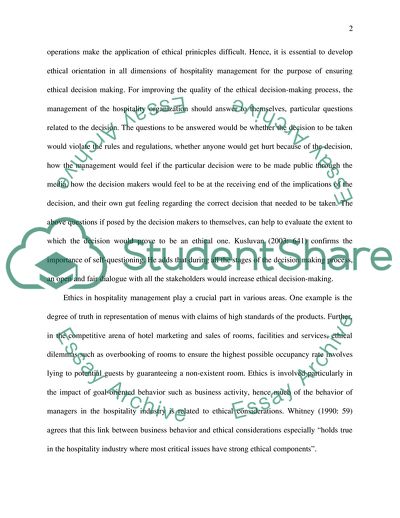Cite this document
(Management in the Hospitality Industry, Ethics in Decision Making Essay Example | Topics and Well Written Essays - 2000 words, n.d.)
Management in the Hospitality Industry, Ethics in Decision Making Essay Example | Topics and Well Written Essays - 2000 words. https://studentshare.org/ethics/1715853-ethics-in-management
Management in the Hospitality Industry, Ethics in Decision Making Essay Example | Topics and Well Written Essays - 2000 words. https://studentshare.org/ethics/1715853-ethics-in-management
(Management in the Hospitality Industry, Ethics in Decision Making Essay Example | Topics and Well Written Essays - 2000 Words)
Management in the Hospitality Industry, Ethics in Decision Making Essay Example | Topics and Well Written Essays - 2000 Words. https://studentshare.org/ethics/1715853-ethics-in-management.
Management in the Hospitality Industry, Ethics in Decision Making Essay Example | Topics and Well Written Essays - 2000 Words. https://studentshare.org/ethics/1715853-ethics-in-management.
“Management in the Hospitality Industry, Ethics in Decision Making Essay Example | Topics and Well Written Essays - 2000 Words”. https://studentshare.org/ethics/1715853-ethics-in-management.


